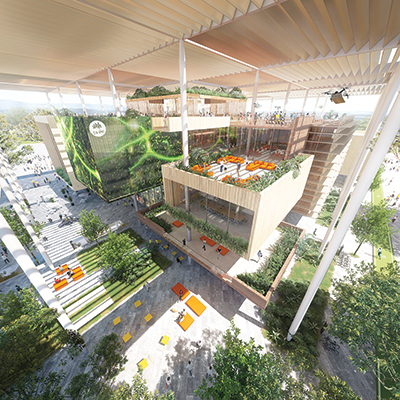Liverpool, New South Wales, has been recognised on the world stage as it joins a select group of 20 global innovation precincts through the Global Institute on Innovation Districts.
Member cities include Toronto and Pittsburgh, known for their cutting-edge technology and creative industries.
Mayor, Wendy Waller, said, “The Liverpool Innovation Precinct was established in partnership between Council and local health, education and research institutions to harness the city’s strengths.”
The news comes off the back of the New South Wales Government’s announcement that up to 450 of CSIRO’s Sydney-based staff will relocate to a state-of-the-art facility at the Western Sydney Aerotropolis by 2026, in line with the opening of Western Sydney International (Nancy-Bird Walton) Airport.
“What we’re seeing through continued collaboration and investment from other levels of government and the tertiary education and private sectors is global recognition of Liverpool and the nearby Aerotropolis as cities of the future.
“Global companies including Northrop Grumman, Hitachi and Amazon, top-ranking Australian universities and now the national science research agency want to call the Liverpool area home.
“There’s a bright future ahead for Sydney’s third central business district (CBD), with all this investment in commercial operations, transport, freight and education infrastructure bringing new job opportunities for our growing city.”
Alongside the $740 million upgrade of Liverpool Hospital, many Council-led initiatives demonstrate the power of innovation and collaboration to improve services and the city’s liveability.
“Council’s latest example of innovation and collaboration is our support of the Maxar Spatial Challenge alongside other partners such as Amazon Web Services and the Australian Space Agency.
“The national challenge encourages participants to make use of satellite data to address key challenges such as mapping population density or an area’s tree canopy which could help reduce the urban heat island effect.
“Other innovative Council initiatives include a project to track the movements of people in the Liverpool CBD to better inform planning decisions and our Fifteenth Avenue Smart Transit (FAST) Corridor vision for a rapid transit corridor which could be future-proofed for new technologies such as driverless electric buses and
trackless trams.”

















